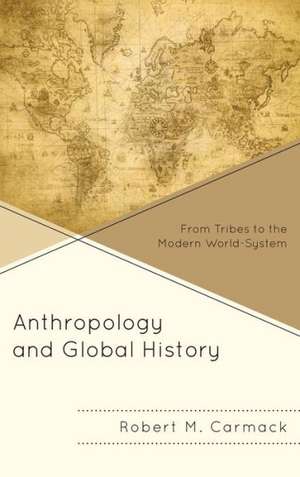Anthropology and Global History
Autor Robert M. Carmacken Limba Engleză Paperback – 16 ian 2015
Preț: 443.50 lei
Nou
Puncte Express: 665
Preț estimativ în valută:
84.86€ • 88.83$ • 70.63£
84.86€ • 88.83$ • 70.63£
Carte tipărită la comandă
Livrare economică 31 martie-14 aprilie
Preluare comenzi: 021 569.72.76
Specificații
ISBN-13: 9781442249011
ISBN-10: 1442249013
Pagini: 408
Ilustrații: 65 black & white illustrations, 2 black & white halftones, 11 tables
Dimensiuni: 147 x 226 x 30 mm
Greutate: 0.59 kg
Editura: Rowman & Littlefield
ISBN-10: 1442249013
Pagini: 408
Ilustrații: 65 black & white illustrations, 2 black & white halftones, 11 tables
Dimensiuni: 147 x 226 x 30 mm
Greutate: 0.59 kg
Editura: Rowman & Littlefield
Notă biografică
Cuprins
Descriere
Anthropology and Global History explains the origin and development of human societies and cultures from their earliest beginnings to the present-utilizing an anthropological lens but also drawing from sociology, economics, political science, history, and ecological and religious studies.
